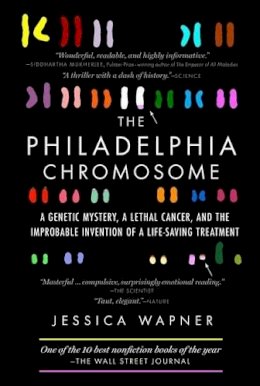5%OFF

Stock image for illustration purposes only - book cover, edition or condition may vary.
The Philadelphia Chromosome
Jessica Wapner
€ 17.99
€ 17.07
FREE Delivery in Ireland
Description for The Philadelphia Chromosome
Paperback. Num Pages: 317 pages, black & white plates, colour plates. BIC Classification: MBX; MJCL; MMG; PDX; PSAK; VFD; VFJB. Category: (G) General (US: Trade). Dimension: 209 x 183 x 26. Weight in Grams: 364.
Product Details
Publisher
The Experiment LLC
Format
Paperback
Publication date
2014
Condition
New
Weight
365 g
Number of Pages
344
Place of Publication
New York, United States
ISBN
9781615191970
SKU
V9781615191970
Shipping Time
Usually ships in 15 to 20 working days
Ref
99-15
Reviews for The Philadelphia Chromosome
